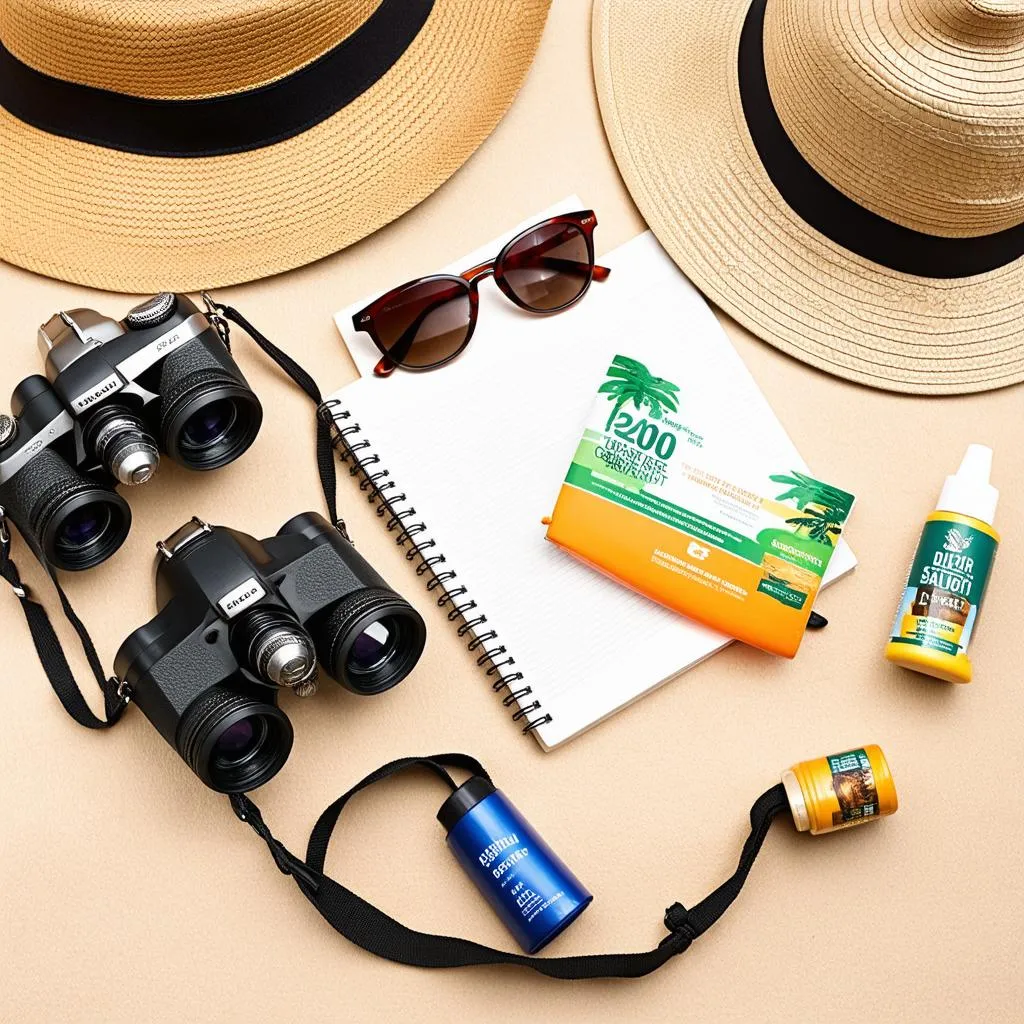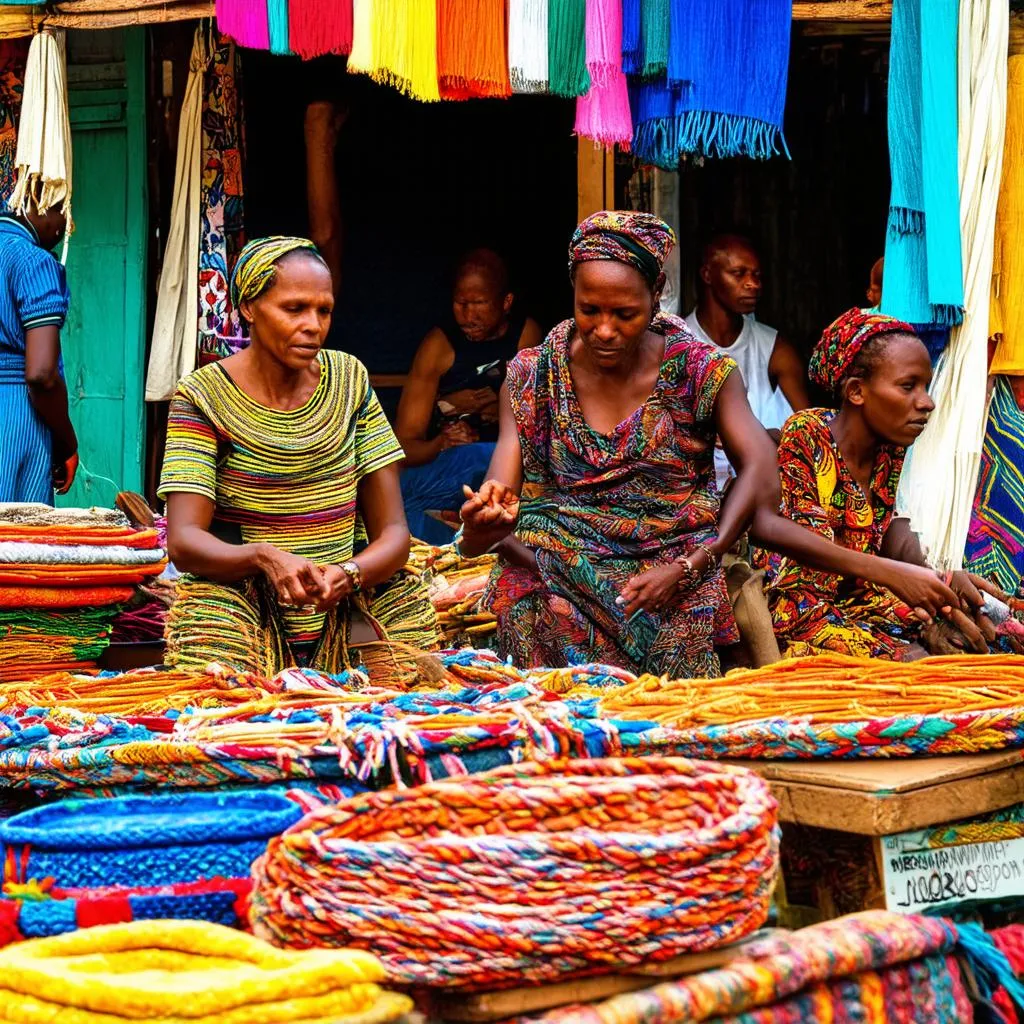“To travel is to live,” Hans Christian Andersen once said. And how true that is, especially when it comes to the magnificent continent of Africa! From the vibrant markets of Marrakech to the breathtaking Victoria Falls, Africa is a continent that awakens the soul. But before you trade the concrete jungle for the real one, you’re probably wondering, “What do I need to travel to Africa?” Well, worry not, fellow adventurer, for this comprehensive guide is here to equip you with everything you need for an unforgettable African escapade!
Unlocking the Mysteries: Essential Requirements for Your African Adventure
Africa is a diverse tapestry of 54 countries, each boasting its own unique charm and regulations. While the specific requirements vary depending on your destination, here are the general prerequisites for your African journey:
Passport & Visas: Your Gateway to the Motherland
Just like any international travel, a valid passport is your golden ticket to Africa. Ensure your passport has at least six months of validity remaining from your intended departure date. Now, for the visa, some countries offer visa-on-arrival for tourists, while others require you to secure one beforehand. For instance, if you plan to explore the bustling streets of Lagos, Nigeria, you’ll need to apply for a Nigerian visa in advance. Always check the specific visa requirements of your chosen African country well in advance to avoid any last-minute hiccups.
Vaccinations & Health Precautions: Staying Safe and Sound
Africa, with its diverse ecosystems, calls for certain health precautions. Consult your doctor at least 6-8 weeks before your trip to ensure you’re up-to-date on routine vaccinations. Additionally, depending on your itinerary and the specific regions you’ll be visiting, you may need vaccinations for diseases like Yellow Fever, Typhoid, and Hepatitis A & B. Don’t forget to pack a well-stocked first-aid kit with essentials like pain relievers, anti-diarrheal medication, and insect repellent.
Flights & Accommodation: Planning Your African Sojourn
With numerous airlines offering flights to various African destinations, you’ll have plenty of options to choose from. Booking in advance, especially during peak seasons, can help you snag better deals. Accommodation options are just as varied, from luxurious safari lodges to budget-friendly guesthouses. Websites like Booking.com and Airbnb offer a plethora of choices to suit every taste and budget.
Currency Exchange: Navigating the Financial Landscape
Most African countries have their own currencies. While US dollars are widely accepted in some tourist hubs, it’s always advisable to exchange some money for local currency upon arrival. ATMs are readily available in major cities and towns, but it’s best to carry some local cash, especially when venturing into rural areas.
Planning Your African Adventure: Crafting Your Perfect Itinerary
Now that we’ve covered the essentials, let’s delve into planning your dream African adventure!
Choosing Your Destination: Where Will Your African Journey Take You?
Africa is a continent of endless possibilities. Are you drawn to the wildlife-rich savannas of Tanzania, eager to witness the Great Migration? Or perhaps you’re longing to explore the ancient pyramids of Egypt, steeped in history and mystery? Whether you’re a history buff, an adventure enthusiast, or a beach lover, Africa has something extraordinary in store for you. Don’t hesitate to check out our “Can I travel to Nigeria with an expired Nigerian passport?” and “How to travel to Cuba as a US citizen” articles for destination-specific travel advice.
Packing Essentials: What to Bring on Your African Escapade
Packing for Africa is all about striking a balance between practicality and comfort. Light, breathable clothing in neutral colors is ideal for the warm climate. Don’t forget a wide-brimmed hat, sunglasses, and sunscreen to protect yourself from the African sun. A good pair of walking shoes is essential for exploring bustling markets and embarking on nature walks. And for those unforgettable safari adventures, pack binoculars, a camera with a zoom lens, and a journal to document your experiences.
 Safari essentials packing list
Safari essentials packing list
Respecting Local Customs: Embracing the African Spirit
Africa is a continent rich in culture and traditions. Embrace the local way of life by dressing modestly, especially when visiting religious sites. Learn a few basic phrases in the local language, it’s a great way to connect with the locals and show your respect. And remember, haggling is a common practice in many African markets, so don’t be afraid to negotiate prices.
Navigating the African Terrain: Transportation Tips
Getting around Africa is an adventure in itself! From local buses to domestic flights, you’ll find various transportation options to suit your needs and budget.
Domestic Flights: Soaring Across the African Skies
Domestic flights are a convenient way to cover long distances, especially when time is of the essence. Numerous airlines connect major cities and tourist destinations within Africa.
Public Transportation: Embracing the Local Commute
Public transportation, such as buses and minivans, offers an authentic and budget-friendly way to experience local life. Be prepared for crowded rides and unpredictable schedules.
Taxis & Ride-Hailing Services: Convenient City Hopping
Taxis are readily available in most African cities and towns. Ensure you negotiate the fare beforehand to avoid any misunderstandings. Ride-hailing services like Uber and Bolt are also gaining popularity in urban areas, providing a safe and reliable mode of transportation.
Embracing the African Spirit: Tips for a Meaningful Journey
Beyond the logistics, traveling to Africa is an opportunity to connect with diverse cultures, witness breathtaking landscapes, and create memories that will last a lifetime.
Immersing Yourself in Culture: Connecting with the Heart of Africa
Take the time to engage with locals, learn about their traditions, and sample authentic cuisine. Visiting local markets, attending cultural performances, and participating in community-based tourism initiatives are incredible ways to immerse yourself in the vibrant tapestry of African culture.
Responsible Travel: Leaving a Positive Footprint
As a responsible traveler, it’s crucial to minimize your impact on the environment and support local communities. Opt for eco-friendly accommodations, respect wildlife, and avoid purchasing souvenirs made from endangered species.
Consider supporting local businesses, such as artisan shops and restaurants, to contribute to the local economy.
 Bustling African market with colorful textiles
Bustling African market with colorful textiles
Staying Connected: Navigating Communication Channels
Staying connected is easier than ever in most parts of Africa. Most hotels, cafes, and restaurants offer Wi-Fi access. Purchasing a local SIM card upon arrival will give you access to data and make it convenient to stay in touch with loved ones back home and navigate using maps.
FAQs: Answering Your Burning Questions
Do I need to learn a local language before traveling to Africa?
While English is widely spoken in many African countries, especially in tourist areas, learning a few basic phrases in the local language can enhance your travel experience and show respect for the local culture.
Is it safe to drink tap water in Africa?
It’s generally not advisable to drink tap water in Africa. Stick to bottled water, which is readily available.
What is the best time to go on a safari in Africa?
The best time for a safari depends on the specific location and the wildlife you hope to see. The dry season (typically June to October) offers excellent game viewing opportunities in many East African countries.
What should I do if I encounter wildlife while on safari?
Always listen to your guide’s instructions and maintain a safe distance from wild animals. Remember, you are a visitor in their natural habitat.
What are some cultural etiquette tips to keep in mind?
Dress modestly, especially when visiting religious sites. Ask permission before taking photos of people. It’s considered polite to accept food or drinks when offered by locals.
Travelcar.edu.vn: Your Guide to Unforgettable Journeys
Planning your African adventure doesn’t have to be daunting! At travelcar.edu.vn, we’re passionate about crafting extraordinary travel experiences. From visa information to travel tips and destination guides, we’re here to provide you with the resources you need to embark on a seamless and unforgettable journey to Africa.
So, what are you waiting for? Start planning your dream African escapade today!
Disclaimer: The information provided in this article is for general informational purposes only and should not be considered professional advice. Always consult with relevant authorities and healthcare professionals for specific requirements and recommendations.
We hope you found this guide helpful! Feel free to share your thoughts, questions, and travel stories in the comments section below. Happy travels!